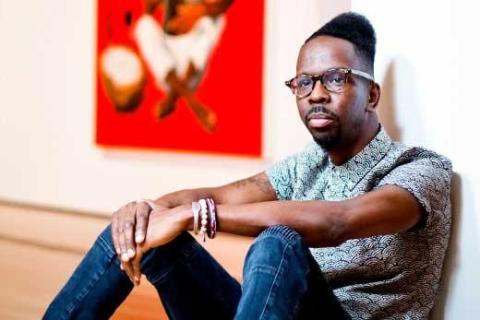Express Yourself: Identity, Style and Adornment
October 19-20, 2018

Photo by Kahran Bethencourt
12th ANNUAL BLACK NEW ENGLAND CONFERENCE
and Awards Dinner
#BNEC2018
“The will to adorn is the second most notable characteristic in Negro expression. Perhaps his idea of ornament does not attempt to meet conventional standards, but it satisfies the soul of its creator.”
— Zora Neale Hurston
Style—whether expressed through art, music, literature, performance, speech, or bodily adornment—operates as a visible and tangible marker of identity and group affiliation.
African American style has functioned as an effective means of communication in the U.S. and abroad. It has influenced how African Americans create identities for themselves and how they express these identities to others.
Although there is no one way to be “authentically” African American, there are numerous aesthetic choices that have overlapped and intertwine. They often form a framework for understanding linkages between the individual self and the individual’s position within social structures. These can be organized around notions of kinship, economic empowerment, religion, and politics.
In exploring the traditions, artistry, and social histories that have shaped different forms of African American style, this conference will investigate the historical and present impact of artistic expression on the development of African American identities and cultural production.
Panelists will also unpack ways in which the embodiment of aesthetic expressions serves as a point of reflection for social issues today. In addition, they will explore how creative cultural Black movements have influenced the mainstream and provided platforms for developing societal beliefs and values.
This conference is for anyone who wants to dialogue around the significance of individual and collective style as more than just a social and climatological necessity. It will be an animated and vibrant celebration of an individual’s drive to define and redefine what it means to be human.
CONFERENCE PANELS INCLUDE
- The Social Brain and the Creation of Black Identities
- African American Representation & Aesthetics in The Movie, Black Panther
- Heads up: It’s all about the Hair
- African American Cool: Commodification, Erasure & Appropriation
- Strange Fruit: Exploring the Style & Art of Black Protest
- The Souls of Black Folks: Stepping Forward, Redrawing Boundaries
The Black New England Conference, now in its 12th year, is an annual 2-day gathering where academics, artists, activists, and community members share insights and research on Black experiences, past and present, in New England and beyond. It is both an academic conference and a celebration of Black life and history.
UNH Students: for student scholarships contact:
email:jaeboggis@blackheritagetrailnh.org
Portsmouth, NH
9:30 - 11:30 a.m.
Black Heritage Trail Tour
Ona Marie Judge Staines, A Profile in Courage
Hear the compelling true story of Ona Marie Judge, who was born in to enslavement and successfully evaded the President and Martha Washington to live as a free woman. Visit the historical sites where her courageous story unfolds. On this tour you will learn how Ona was able to elude the Washingtons’ efforts to recapture her and meet some of Portsmouth’s most famous families, the Langdons and the Whipples, who would helped the local Black community defy the most powerful man in the country to help her.
Sankofa Tour Guide: Angela Matthews
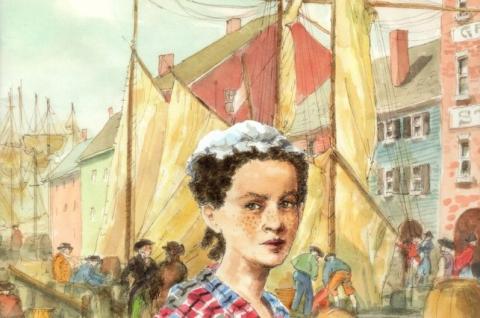
Museum of Art, UNH, Durham
2:00 - 12:30 p.m.
Artist Reception
Fahamu Picou, DO or DIE: Affect, Ritual & Resistance
This artist exhibit serves as one artist’s action in opposition to the overwhelming threats of death and violence which plague Black existence. Through performance, painting, drawing and video, Pecou reframes our view of Black mortality, incorporating references from Yoruba/ Ifa ritual to cultural retentions of hip-hop to the philosophy of Négritude, and through this, shapes a story that seeks to affirm life via an understanding of the balance between life and death.
Image credit: Fahamu Pecou, the return, 2016, acrylic on canvas,
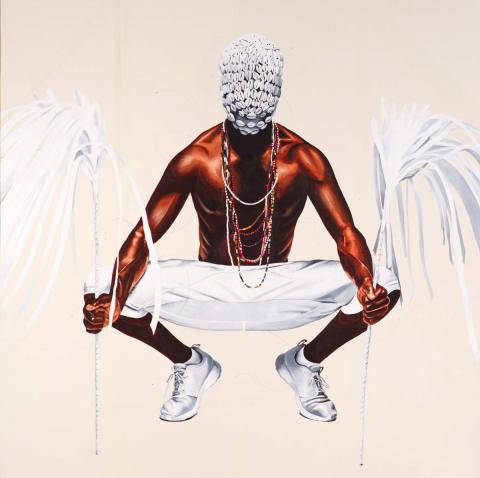
Fahamu Pecou, the return, 2016, Acrylic on canvas, 96" x 96", Courtesy of the artist
Holloway Commons, Squamscott Room, UNH, Durham
1:00 - 2:00 p.m.
Check-in and Registration
2:00-3:30 p.m.
Panel 1
The Social Brain and the Creation of Black Identities
Historically, a "Black aesthetic" in the U.S. was developed in a contentious relationship with European-American culture, as descendants of enslaved people in the U.S. worked to create and maintain their own traditions while facing racial discrimination. Panelist will explore sociological and/or cognitive approaches to the social brain, African American style, and the creation of Black identity.
Panelists:
- Casey Golomski, University of New Hampshire
Spiritual Style: Masks and the Making of Black Identity, the Seacoast African American Cultural Center
- Jennifer Thorn, St. Anslem College,
"Those Wicked Boys": Blackness and Boyhood in the Memoir of James Jackson
- John Berst, University of New Hampshire,
The Evolution of Black Musical Theatre and Audience Response: Homogenous or Heterogeneous?
Image: IN HONOR OF Elizabeth Hobbs Keckley (1818 – 1907)
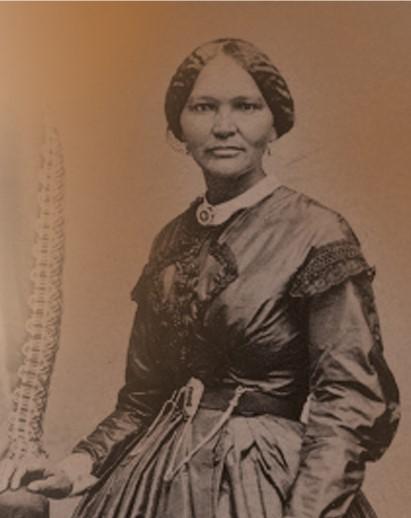
3:45 -5:00 p.m.
Film Discussion
African Amerian Representations and Aesthetics in the Black Panther
Black Panther, with its Afro-futuristic elements challenges stereotypes by readjusting the barometer of African imagination. This panel will discuss the film's redefining of Africa's aesthetic within today's cinematic consciousness, the complexities of Black style and how the film serves as a vehicle for asserting cultural significance and identity in a culturally hostile environment.
Panelists:
- Delia Konzett, University of New Hampshire
- Kabria Baumgartner, University of New Hampshire
- Lisa Simmons, Roxbury International Film Festival
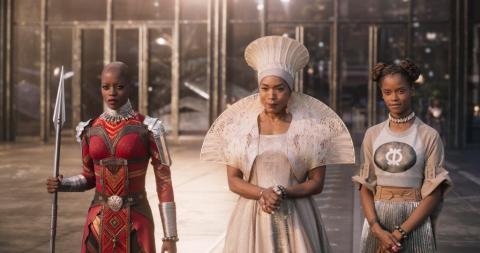
6:00 – 8:30 p.m.
Awards Dinner (honoring 2018 Citizen of the Year Award to Ashley F. Bryan, an illustrator, poet, puppeteer, storyteller and scholar of African American Folklore, for his lifetime achievements)
Keynote Address will follow
Featuring Dr. Lucius Turner Outlaw Jr.Lucius wearing suit "Stylin 'n' Profilin': Fashioning Expressive
Reclamations of Selfhood and Peoplehood"
Casey Golomski, Ph.D.
Dr. Casey Golomski is a cultural and medical anthropologist and Africanist with strong interests in the humanities. He is an assistant Professor in Anthropology, Women's Studies, and Africana and African American Studies at UNH. His research outcomes and writing have been published in journals such as Medical Anthropology, Material Religion, and American Ethnologist, and shared at invited talks for Michigan State, Emory, Johns Hopkins, and Harvard universities, and NedBank. He is an associate editor for the African Journal of AIDS Research, a board member of the Northeast Workshops on Southern Africa, and former consultant to UNICEF. His book Funeral Culture: AIDS, Work, and Cultural Change in an African Kingdom is newly published with Indiana University Press.

David Livingston Smith
David Livingston Smith
David Livingstone Smith is a Professor of Philosophy at the University of New England in Biddeford, Maine. He is the author of seven books, as well as numerous papers on dehumanization, philosophy of psychology, philosophy of race, self-deception, philosophy of the social sciences, mass violence, ideology, propaganda, and other topics. His book Less Than Human: Why We Demean, Enslave and Exterminate Others (2011) was awarded the 2012 Anisfield-Wolf award for nonfiction, and he is currently working on a book entitled Making Monsters: The Uncanny Power of Dehumanization, to be published by Harvard University Press.
David is a strong advocate of philosophy having a role in public discourse and often writes to bring philosophical thought to a general audience. He is a regular blogger for Philosophy Talk, is a frequent contributor to Aeon magazine, has appeared in three prime-time documentaries, has been interviewed and cited on numerous occasions in the national and international media (most recently, national public radio’s Truth, Politics, and Power) and was a guest at the 2012 G20 economic summit, where he spoke about dehumanization, racism, and mass violence.

Jennifer Thorn, Ph.D.
Jennifer Thorn Ph.D., is an Associate Professor of English and Director of the Interdisciplinary minor in Gender Studies at St. Anselm College. Dr. Thorn joined the English Department at Saint Anselm College in 2009, after teaching at Colby College and Duke University. She earned her M.A. and Ph.D. at Columbia University and her B.A. at State University of New York at Binghamton. She works in the transatlantic eighteenth and nineteenth centuries, with a special focus on the history of childhood, class and race. Dr. Thorn has several works in publications including "From 'Blind Susan' to Incidents in the Life of a Blind Girl: How Mary L. Day Disabled Domesticity," for the book Disabling Domesticity, "Phillis Wheatley's Ghosts: The Racial Melancholy of New England Protestants," Eighteenth-Century Theory and Interpretation, and "The work of writing race: Galland, Burton, and the Arabian Nights," in Monstrous Dreams of Reason: Cultural Politics, Enlightenment Ideologies. While at Duke, she was awarded two teaching awards, one from Duke recognizing excellence in the teaching of seniors and one from the American Society for Eighteenth Century Studies for innovative course design. Dr. Thorn is the editor of the collection Writing British Infanticide: Child-Murder, Gender, and Print,1722-1859. Dr. Thorn is at work on two book projects, parts of which both have been published: Phillis Wheatley and Childhood and Blind Girls and Women: Print and Progress', 1795-1902.
John Berst
John Berst serves as the Director of Musical Theatre for the University of New Hampshire Department of Theatre and Dance, where he teaches several courses in Musical Theatre Performance, Literature and Repertoire, Musical Theatre History, and Musical Theory. Professor Berst also regularly directs and music directs on the UNH mainstage. He has presented at conferences internationally and domestically at several conferences, including the Association for Theatre in Higher Education (ATHE), the Mid-America Theatre Conference (MATC), the Kennedy Center American College Theatre Festival (KCACTF), and the New England Theatre Conference (NETC). Berst holds a Master of Fine Arts in Acting from Purdue University’s Professional Actor Training Program, and Bachelor’s degrees in Music and Theatre from the University of Buffalo; The State University of New York. He has extensive professional experience as a music director and actor, and he is proud to be a member of Actor’s Equity Association and an associate member of the Stage Directors and Choreographers Society.

Delia Konzett, Ph.D.
Delia Konzett, Ph.D., is professor of English and cinema/American/women's studies at the University of New Hampshire. She is the author of "Ethnic Modernisms" and "Hollywood's Hawaii" (Rutgers UP, 2017), the first full-length study of the film industry's intense engagement with the Pacific region from 1898 to the present. Her new book highlights films that mirror the cultural and political climate of the country over more than a century — from the era of U.S. imperialism on through Jim Crow racial segregation, the attack on Pearl Harbor and WWII, the civil rights movement, the contemporary articulation of consumer and leisure culture, as well as the buildup of the modern military industrial complex. Focusing on important cultural questions pertaining to race, nationhood and war, the book offers a unique view of Hollywood film history produced about the national periphery for mainland U.S. audiences. "Hollywood's Hawaii" presents a history of cinema that examines Hawaii and the Pacific and its representations in film in the context of colonialism, war, Orientalism, occupation, military buildup and entertainment.
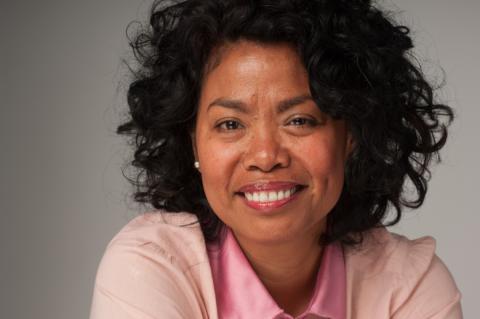
Kabria Baumgartner
Kabria Baumgartner, Ph.D., is an assistant professor of American studies at the University of New Hampshire. She is a scholar of nineteenth centry African American history, literature, and culture. She has earned awards to support her research, including fellowships from the Library Company of Philadelphia, Massachusetts Historical Society, and the National Academy of Education. Her work has appeard in scholarly journals such as the Ethnic Studies review, New England Quarterly, Journal of the Early Republic, and the Journal of Social History. Her book, A Right to Learn: African American Women and Educational Activism in Antebellum America (under contract with NYU Press) tells the history of school desegragation in the early nineteenth century northeast from the perspective of African American girls and women. Her next project is an edited volume on the experience of people of color in Essex County, Massachusetts.
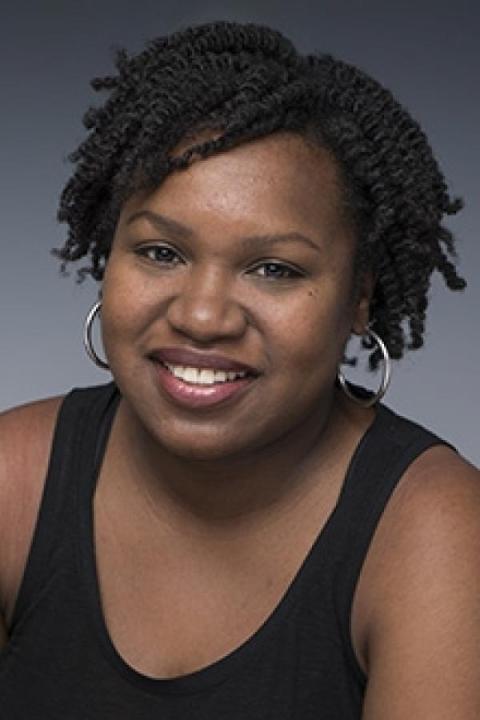
Lisa Simmons
Lisa Simmons is a Program Manager overseeing the Community Initiative at the Mass Cultural Council which includes grant programs for the Local Cultural Councils, Cultural Districts and Festivals Program. She is the Director of the Roxbury International Film Festival (RoxFilm), now in its 21st year, and The Color of Film Collaborative, whose mission is to support filmmakers and present films and programs that celebrate people of color around the world. Ms. Simmons has produced theater and film in the Boston area, published and presented on the Negro Theater Project of the WPA and is working on a documentary about the Boston Negro Theatre Unit. She is the recipient of the GK Top 100 Influential People of Color Award, Image Award from WIFVNE, Diversity award from Our Place Theater Project, Leadership award from the Urban League Guild of Eastern Massachusetts and The President’s Award for Leadership from Dimock Community Health Center.
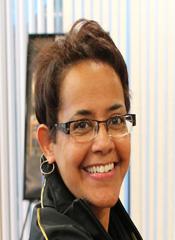
Lucius T. Outlaw, Jr.
Lucius T. Outlaw, Jr., professor of philosophy and of Africana and diaspora studies at Vanderbilt University.
Prior to joining the Vanderbilt faculty, Outlaw was the T. Wistar Brown Professor of Philosophy at Haverford College and taught at Fisk University and Morgan State University. He was in residence in the philosophy department of Boston College as the Honorable David S. Nelson Professor. Other visiting appointments have included Distinguished Visiting Associate Professor at Spelman College (1986-1987); Visiting Professor of Philosophy at Howard University (1992-1993); and R. Hawley Truax Visiting Professor in Philosophy at Hamilton College (fall semester, 1994).
In addition to numerous essays, Outlaw has published On Race and Philosophy (Routledge, 1996) and Critical Social Theory in the Interests of Black Folks (Roman and Littlefield, 2005). He is a member of the editorial boards of Philosophy and Social Criticism and Speculative Philosophy. A member of the American Philosophical Association, he has served on the association's board of officers and as the chairman of various APA committees, including Committee on Inclusiveness, the Committee on Blacks in Philosophy, Committee on the Prospects and Future of the Profession, the Program Committee, and the Executive Committee of the Association's Eastern Division.

Phillip Lamarr Cunningham, Ph.D.
Phillip Lamarr Cunningham Ph.D., is Assistant Professor of Media Studies and Co-Director of the Interdisciplinary Sports Studies Minor at Quinnipiac University. His research primarily focuses on the construction of ethnic, racial, and gender identities in popular culture. Other scholarly work by Dr. Cunningham has appeared in the Journal of Graphic Novels and Comics, Journal of Popular Music Studies, Journal of Sport and Social Issues, and M/C Journal: A Journal of Media and Culture and various anthologies.

Naykishia D. Head
Naykishia D. Head is a former instructor of English in the Department of Languages, Literature, and Philosophy at Tennessee State University. Professor Head also taught Cultural Diversity and Information Literacy classes, along with Composition courses at IADT-Nashville. Her research interests include Gender and Women’s Studies, African American Literature, the LBGTQ experience, and anything HBSC-related . She has publications in Black Magnolia Literary Journal, The Researcher, Jackson States University’s Interdisciplinary Journal, Tennessee Philological Bulletin, and Meeting Points in Black/African Women’s Literature. Furthermore, she was also a regular contributor at HBCULifestyle. Professor Head has also presented at several conferences and symposiums, and additionally served as a panelist and moderator for various literary and cultural events. Her educational journey continues at Bowling Green State University, where she is pursuing her Ph.D. in American Culture Studies, with a concentration on Ethnicity, Gender, and Social Identities.
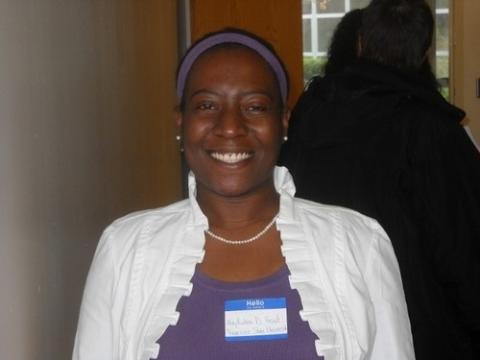
Kirk Maynard
Kirk Maynard is a mixed-media artist. He received his B.S. in Visual Arts Education from Andrews University in 2014 and is currently an M.F.A. student at New Jersey City University. A second-generation Guyanese-American, Maynard’s work focuses on the political undercurrents of culture and identity in America.
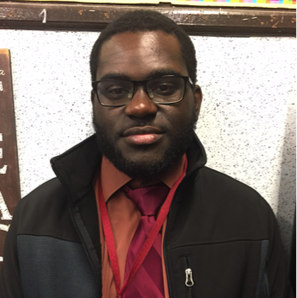
Petria May
Petria May first published her work on dress codes after noticing that a substantial number of her Yale classmates adorned themselves mostly in black clothing. Following that first brush with the semiotics of style, May worked as a journalist and lawyer where she sometimes represented fashion companies. She left law to open an eponymous clothing boutique profiled in publications including Vogue and Essence magazines. May has also maintained personal style blogs (365 Days of Style), written a weekly column for a local newspaper and founded “Dress Code,” a monthly style column for Berkshire Living magazine. Now an English teacher at The Beacon School in Manhattan, May created and teaches "Dress Codes,” a senior English elective, and advises the student club “stylemakers.” She is working on a book about uncovering the complexities of contemporary society through the lens of adornment. For the last several years, May has also been developing writing and talks focused on what she calls "protest dress.” Last year, she presented a corner of her work in Professor Graziella Parati’s fashion class at Dartmouth College.

Alexandra Thomas
Alexandra Thomas is a Ph.D. student at Yale University studying African American Studies and History of Art. Her current research explores contemporary art and performance of African and African Diaspora; photography and new media, Black Feminist theory and queer theory. She received her B.A., magna cum laude, from Brandeis University with highest honors in African and Afro-American Studies and Women’s Gender and Sexuality Studies. Dr. Thomas was the 2017-2018 recipient of three awards from Brandeis University: the Doris Brewer Cohen Award in Justice and Public Life for best senior thesis in the social sciences, the W.E.B Du Bois Award for Academic Achievement in African & Afro-American Studies and the Giller-Sagan Senior Paper Prize in Women’s, Gender and Sexuality Studies.

Enrico Riley
Enrico Riley is a Professor of Studio Art at Dartmouth College in Hanover, NH. Riley earned a BA in Visual Studies from Dartmouth College and an MFA in painting from Yale University School of Art. He is the recipient of a John Simon Guggenheim Memorial Foundation Fellowship, a Rome Prize in Visual Arts, an American Academy of Arts and Letters Purchase Prize in painting and a Jacobus Family Fellowship through Dartmouth College. Riley’s work has been exhibited extensively, including at The American Academy in Rome, Italy; Virginia Museum of Fine Arts in Richmond, VA; Columbus Museum, Columbus, Georgia; The Nasher Sculpture Center, Dallas, Texas; American Academy of Arts and Letters in New York City; Hood Museum of Art, Hanover, NH; The Museum for the National Center of Afro-American Arts in Roxbury, MA; and the Accademia di Belle Arti di Roma, Rome, Italy.
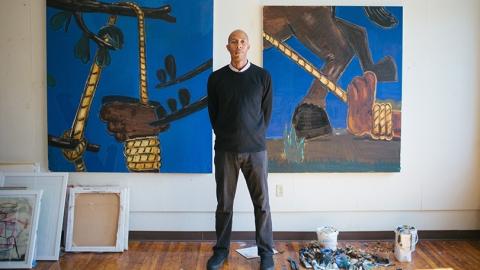
Karen Chambers
Karen Chambers is Executive Vice President of IMAN Cosmetics, a global leader in beauty for Women of Color. She was named one of the beauty industry's leading women to watch by Upscale Magazine. Prior to IMAN, she held executive positions with multicultural fashion and beauty brands including: Dark & Lovely, Black Radiance and Ashley Stewart. Her industry credits include receiving ESSENCE Beauty Awards and an Oprah "O-Ward" for cosmetics innovation. Ms. Chambers has been a longtime contributing travel, beauty, career and lifestyle writer and editor for Black Enterprise, Black Elegance and Black Planet.com. She’s worked as a stylist/makeup artist for leading designers and retailers including Donna Karan, Nordstrom and Macy’s and created product launches and brand campaigns for Patti LaBelle, Gladys Knight and the Oprah Winfrey Show. Ms. Chambers is an alumna of Rutgers University with degrees and certifications in Communication and Multicultural, Interfaith and Holistic Studies

Jada K. Hebra
In 2016, Jada K. Hebra became the first Senior Vice President and Chief Diversity and Inclusion Officer at Southern NH University (SNHU). Prior to SNHU, and after a stint in broadcast news at ABC in New York, Jada spent 25 years working in the private secondary school sector designing and supporting diversity and inclusion initiatives while also serving in leadership roles such as Humanities teacher, Associate Dean of Students, Director of College Advising, Director of Admission, Dean of Faculty and Assistant Head of School. A restorative practice trainer, project manager, and leader with the National SEED (Seeking Educational Equity and Diversity) Project, Jada works with university stakeholders to advance strategic diversity and inclusion goals. With a BA in Sociology from Vassar College, an MS from Columbia University School of Journalism, and an MS in Industrial and Organizational Psychology from SNHU currently underway, Jada draws on her lifelong passion for people and storytelling to deepen her own and others’ understanding of bias and beauty across difference.
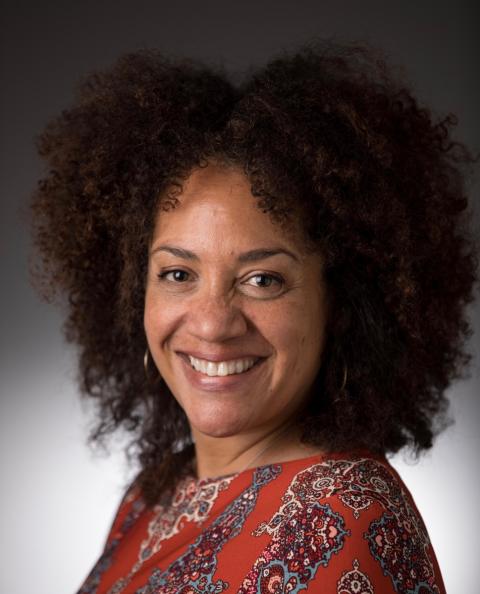
Darina Pugacheva
Darina Pugacheva Ph.D., is a Doctoral Candidate in the Department of French Studies at Louisiana State University. She received her B.A. in English and French Linguistics from Yaroslavl State Pedagogical University in Russa, and her M.A. in literature, languages and Translation from the University of Wisconsin, Milwaukee. Her current research focuses the representations of women's hair an dhair narrative in the writings of Anglophane and Francophone female authors from Martinique, Guadeloupe, Nigera and United States. Darina specializes in Francophone and Anglophone literature of the Caribbean basin and Africa. Her interests include Women and Gender Studies, Comparative Cultural Studies, and literary translation.

Akinshimaya Nnamdi
Akinshimaya Nnamdi is a doctoral student at the University of Miami. She focuses mainly on race and ethnicity and criminology. Dr. Nnamdi attended the Florida State University in Tallahassee, Florida for her undergraduate studies. A first-generation college student, Nnamdi wants to use her experience and education to speak against institutionalized discrimination in society and to help cultivate upcoming generations.
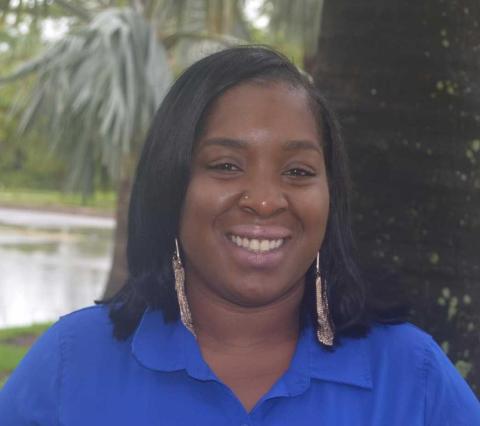
Martha Mezzanzanica
Martha Mezzanzanica is a sociologist with strong research interests in cultural questions relating to race, citizenship, gender, politics of body and integration. Graduating with honors, she earned her M.A. in Social Science for Research and Institutions at Università degli Studi di Milano and her B.A. in Sociology at Università degli Studi di Milano-Bicocca.
Researcher in the Longitudinal Team at the National Centre for Social Research (NatCen) in London, she works on some of Britain’s largest longitudinal surveys including ELSA (English Longitudinal Study of Ageing) and NCDS (National Child Development Study). She also works on the NatCen Panel, a random probability CAWI-CATI panel. Mezzanzanica is responsible for managing and delivering quantitative research on a wide range of topics for different clients (government departments, charities and academics).
As she started her career in qualitative research at Codici sc - an Italian social research agency specialised in “action-research” and “empowerment process” on issues such as education, communities, welfare, youth, inclusion and migration - Mezzanzanica is a mixed methods researcher. Prior to joining NatCen in 2018, Mezzanzanica was a junior researcher at Doxa Spa, the first Italian company for statistical and market analysis.

Dorothy Clark
Dorothy Clark is the editor of Historic New England magazine, a member publication of Historic New England, the oldest and largest regional cultural heritage organization in the United States. She is a fellow of the Massachusetts Historical Society and a member of the board of directors of the Loring Greenough House in Jamaica Plain, MA. Ms. Clark holds a master’s degree in historic preservation and American history, and a bachelor’s degree in journalism. Her mission is to advance the relevance of history among the public and to advocate critical and enlightening engagement with the past.
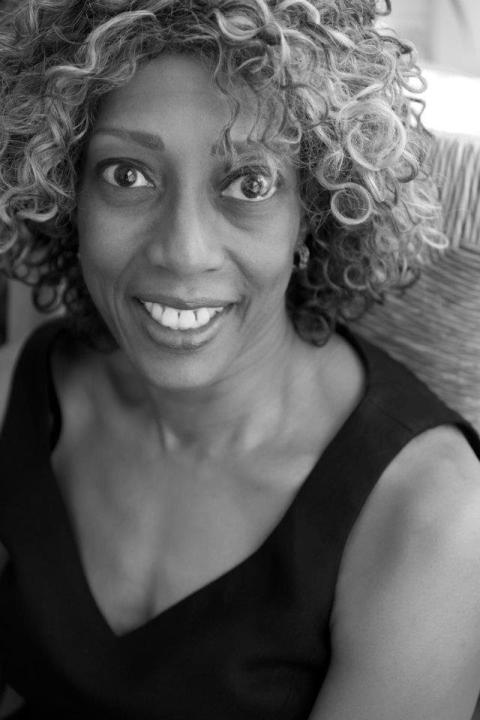
Tracey Walters, Ph.D.
Dr. Tracey Walters is Associate Professor of Literature and Chair of the Department of Africana Studies at Stony Brook University where she also holds an affiliate appointment with the Department of English and Comparative Literature. She has published a number of articles on the subject of African Diasporic Women’s literature and two books: African American Women and the Classicists Tradition: Black Women Writers from Wheatley to Morrison (Palgrave 2007) and edited the collection Zadie Smith: Critical Essays (Peter Lang 2008). In the Fall of 2013, Dr. Walters received the Outstanding Faculty Member Award from the Stony Brook University chapter of the NAACP.
Terry Robinson
Terry Robinson is the Founder and Creative Director of HOUSE OF TESTAMENT, a streetwear brand focused on designing concepts that resonate with our demographic. As he begins his Art Studies at the University of New Hampshire, his experiences as a public speaker, having won numerous awards, including a National Championship in Public Speaking from Future Business Leaders of America (FBLA) and, as a social activist winning the MLK Commission of Florida award and the Rosa Parks Quiet Courage award, he will prove to be invaluable. Robinson’s special interest in design and the arts has already led him to create opportunities for others to grow as creatives.
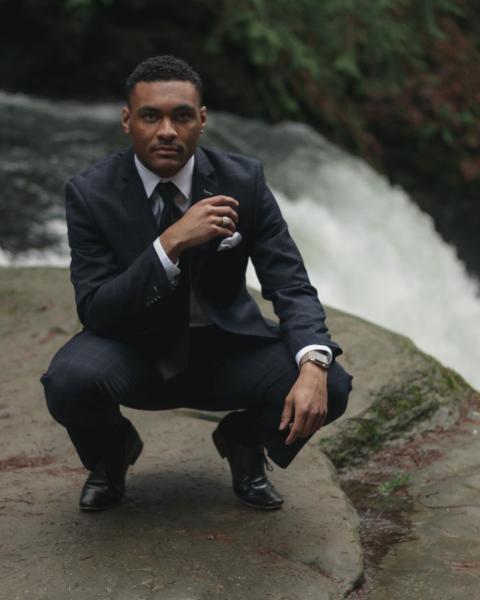
Fahamu Pecou, Ph.D.
Fahamu Pecou Ph.D., is an interdisciplinary artist and scholar whose works combine observations on hip-hop, fine art and popular culture. His paintings, performance art, and academic work addresses concerns around contemporary representations of Black masculinity and how these images impact both the reading and performance of Black masculinity. Dr. Pecou earned his BFA at the Atlanta College of Art in 1997 and PhD from Emory University in 2018. Dr. Pecou maintains an active exhibition schedule as well as public lectures and speaking engagements at colleges and museums nationwide. In 2017 Pecou was the subject of a retrospective exhibition "Miroirs de l'Homme" in Paris, France. He is a recipient of the 2016 Joan Mitchell Foundation "Painters and Sculptors" Award. His work is featured in noted private and public national and international collections including; the Smithsonian National Museum of African American Art and Culture, Societe Generale (Paris), Nasher Museum at Duke University, The High Museum of Art, Crystal Bridges Museum of American Art, Seattle Art Museum, Paul R. Jones Collection, Clark Atlanta University Art Collection and Museum of Contemporary Art Georgia.
